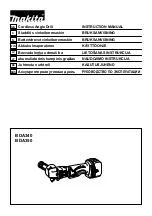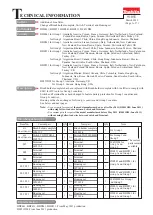
10
All-live system
Fence-return system
Horizontal stay
Suitable for field gate, high-tension strainer.
Very simple to erect and most suitable as a high
tension strainer, excellent in areas where the soil
gets very wet or where heavy frost occurs.
Installing and testing an earth system
Select a suitable site for the earth system. Sites
need to be:
At least 10 m (33’) from other earth systems
(e.g. telephone, mains power or the earth
system of another energizer).
Away from stock or other traffic that could
interfere with the installation.
At a site that can be easily observed for
maintenance.
Ideally at a site that has damp soil (e.g. a
shaded or swampy location). Note that the
earth does not need to be directly adjacent to
the energizer installation.
Drive the required number of earth rods into the
ground. Use high-voltage, insulated cable and earth
clamps to continuously connect the earth rods and
the energizer’s Fence earth terminal. Make sure the
insulation is stripped back to ensure good contact
between the wire and the earth rod. The table
below specifies the minimum number of 2 m (6’6‛)
earth rods recommended for an earthing system:
Energizer
Earth rods
1 J model
1
2 J model
2
3 J model
3
Test the earth system, using the following
procedure:
1
Turn off the energizer.
2
At least 100 m (330’) away from the
energizer, short circuit the fence by laying
several steel rods or lengths of pipe against
the fence. In dry or sandy conditions, it may
be necessary to drive the rods up to 300 mm
(12‛) into the earth.
Note:
It is not acceptable to short-circuit a
fence return system to the earth wire of the
fence.
3
Turn the energizer back on.
4
Using an electric fence voltmeter, ensure that
the fence voltage is below 2 kV.
5
Check your earth system.
Insert the
voltmeter’s earth probe into the ground at the
full extent of the lead, and clip the other lead
to the last earth rod. The voltmeter should not
read more than 0.8 kV. Anything higher than
this indicates that better earthing is required.
Either add more earth rods or find a better
ground area to drive in the earth rods.
Note:
When earthing energizers located in dairies,
earth at least 20 m (65’) away from the dairy using
double-insulated lead-out wire to avoid touching
the dairy building or equipment.
































